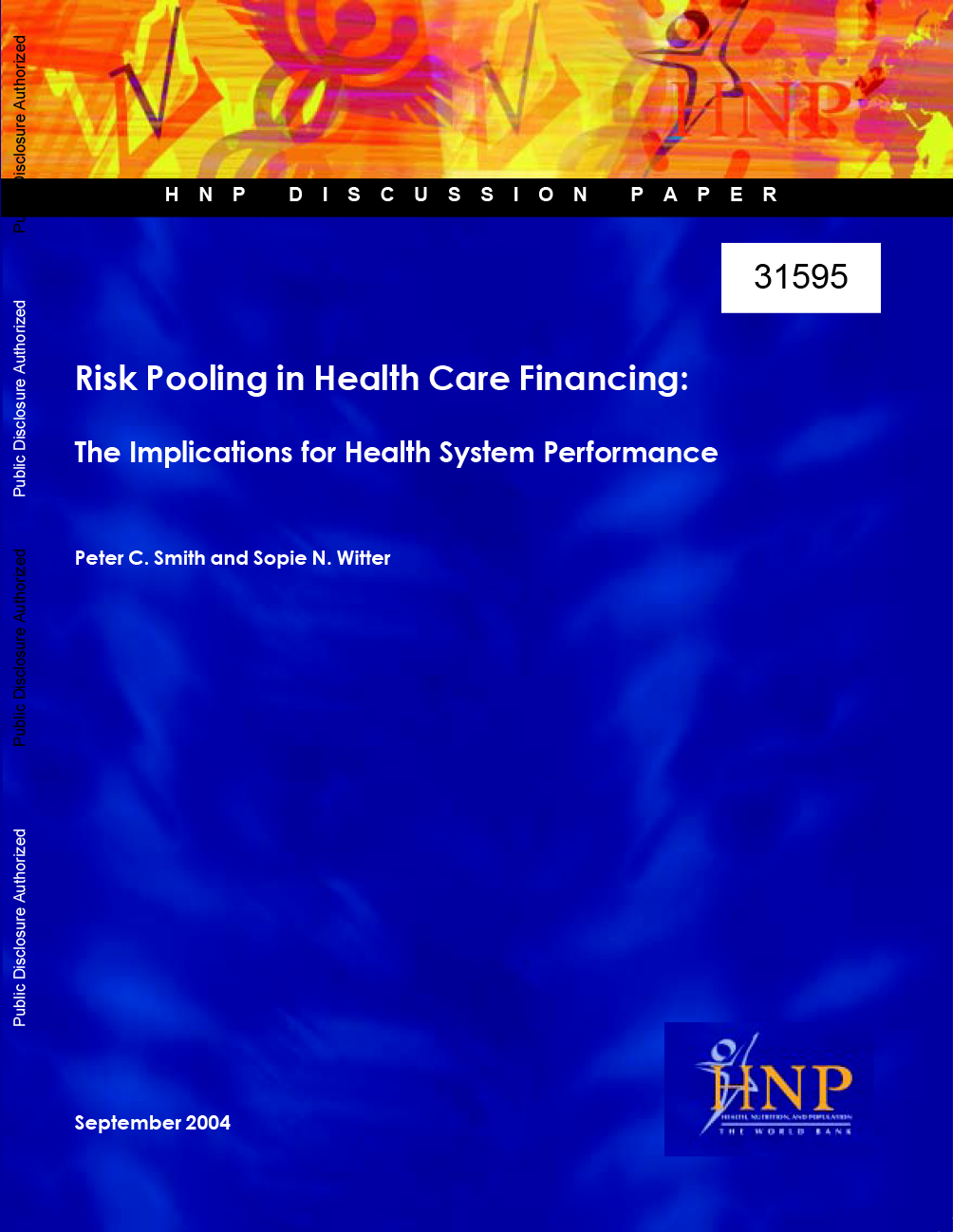
Resource Library
Risk Pooling in Health Care Financing: The Implications for Health System Performance
Pooling is the health system function whereby collected health revenues are transferred to purchasing organizations. Pooling ensures that the risk related to financing health interventions is borne by all the members of the pool and not by each contributor individually. Its main purpose is to share the financial risk associated with health interventions for which there is uncertain need. The arguments in favor of risk pooling in health care embody equity and efficiency considerations. The equity arguments reflect the view that society does not consider it to be fair that individuals should assume all the risk associated with their health care expenditure needs. The efficiency arguments arise because pooling can lead to major improvements in population health, can increase productivity, and reduces uncertainty associated with health care expenditure. The report considers four classes of risk pooling: no risk pool, under which all expenditure liability lies with the individual; unitary risk pool, under which all expenditure liability is transferred to a single national pool; fragmented risk pools, under which a series of independent risk pools (such as local governments or employer-based pools) are used; and integrated risk pools, under which fragmented risk pools are compensated for the variations in risk to which they are exposed. It notes that small, fragmented risk pools, which are the norm in developing countries, contribute to seriously adverse outcomes for health system performance. It therefore argues strongly for integration of risk pools as an important health system stewardship responsibility. There are numerous practical difficulties in making integration operational, so the report offers some guidance on implementation, noting that optimal design of risk pooling arrangements depends heavily on local circumstances. It concludes with suggestions for a number of measures of health system performance that can offer indications of the success of risk pool integration.
Resource Type : Other
Country :
Year : 2004-09-01T12:00:00
Language : English
Project : SHOPS


